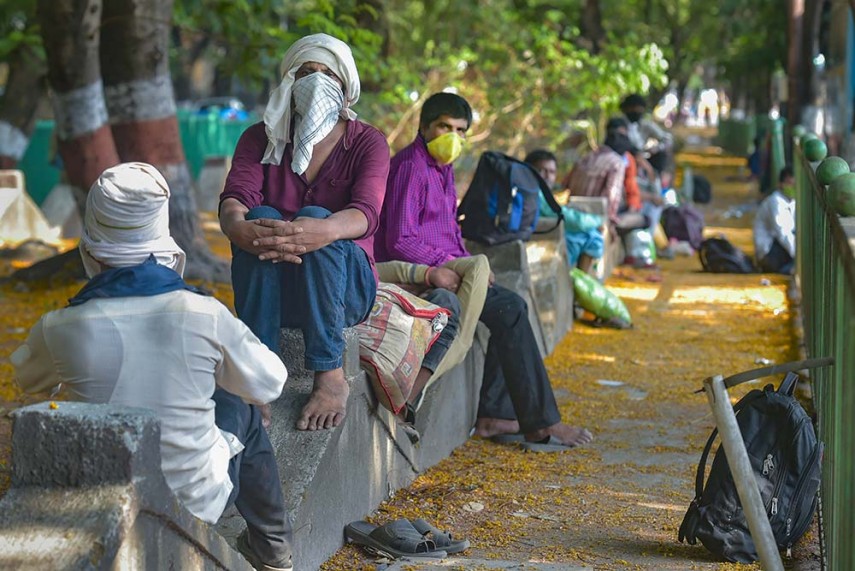![]()
Parle Products Ltd, one of India’s top biscuit makers, has been unable to run its units in Mumbai at full capacity for the past few weeks despite strong demand.
Many of the 30,000-strong migrant workforce employed at Parle or at its associate networks across the country have chosen to return to their hometowns instead of braving the extended lockdown in big cities such as Mumbai, where the number of covid-19 infections is yet to show signs of abating.
“We are a labour-intensive industry and a good part of our labour is migrant, so we are facing the same issue as others,” said Mayank Shah, senior category head, Parle Products Ltd. “We are trying to manage operations through local labour, which is 60-65% of what we actually need,” Shah added.
Companies across the board are facing an acute labour shortage, despite businesses slowly limping back to normalcy with the easing of lockdown measures. This is likely to significantly add to the cost of operations because of higher wages and suboptimal capacity utilization. Parle, for instance, said its labour cost will increase by 25-30%.
The pandemic-induced lockdown has impacted as much as 65% of manufacturing output, 60% of construction output, and 53% of services sector activity, according to industry estimates.
India has 40 million migrant labour, of which 3 million have walked back to their villages, according to research firm Jefferies. States such as Maharashtra, Tamil Nadu and Gujarat, which are most dependent on output from industry and services and home to large numbers of migrants, are more vulnerable to output losses as they face restrictions on business activity because of higher number of infections.
The exodus of the migrant workforce, estimated at 25% of the population in big cities, has affected business activity across the board.
However, the problem is acute where skilled labour is involved, leaving companies to work out strategies to face the challenge.
Sunjay Kapur, chairman of auto parts maker Sona Comstar, has been working closely with blue-collar workers to ensure they return to work. “We have to bring the migrant labour back because, at the end of the day, we need manpower as demand recovers. The migrant workers will be back when they see market demand improving and conditions stabilizing,” said Kapur.
“Shortage of labour is definitely an issue in non-containment zones and, currently, industries are trying to arrange labour from nearby regions,” said Sudeep Sen, business head for industrial, manufacturing and engineering segments at staffing solutions firm TeamLease.
To get migrant labourers back, TeamLease is using historical data to find regions from where they sourced labourers locally and are also encouraging clients to do the same. However, to gauge the real impact of labour shortage on businesses, one will have to wait for at least a month, Sen said.
Many companies have, however, begun working to get the labour force back, asking the existing manpower in some cases to reach out to those who have left and assuring them of safe work conditions such as proper hygiene measures, sanitization, social distancing and medical help.
We are providing practical training (Labor Laws, Payroll, Salary Structure, PF-ESI Challan) and Labor Law, Payroll Consultant Service & more:
- HR-Generalist-Practical-Training: https://oneclik.in/hr-generalist-practical-training/ (PF, ESI, Bonus, Payroll & more)
- Labour-Law-Practical-Training: https://oneclik.in/labour-law-practical-training/ (Factory, Contact Labor, Maternity Act & more)
- PF – ESI Consultant Service: https://oneclik.in/pf-esi-consultant-service/
- Labor Law, Compliance & HR – Payroll Management
To get connected & for latest HR, IR, Labor Law Updates:
- Telegram Channel: “One Clik”
- Whatsapp Group: https://wa.me/919033016939
- Facebook: One Clik
- Linkedin: One Clik
- Instagram: oneclik_hr_management

